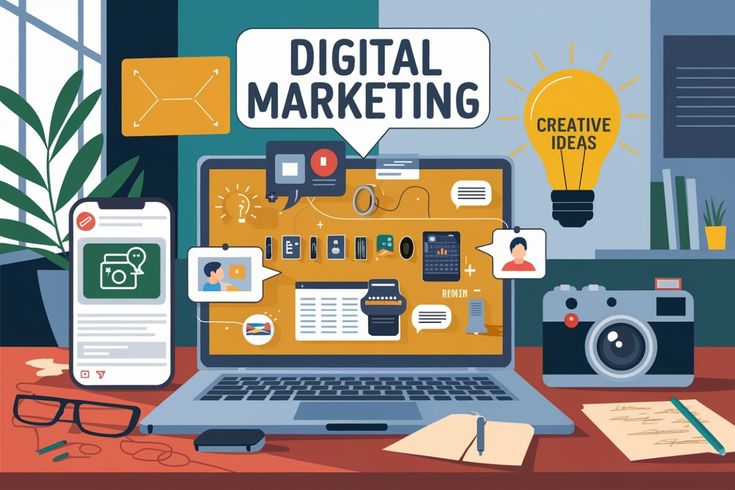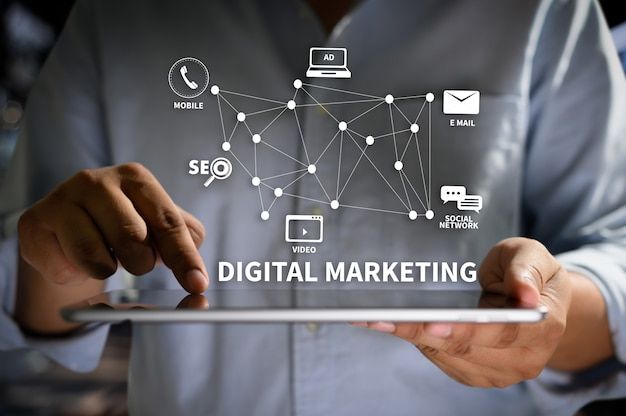Digital marketing.
1. Introduction: The Evolution of Marketing
Digital marketing has revolutionized the way businesses connect with consumers. Traditionally, marketing relied on physical media such as print, radio, and television. However, the rapid growth of the internet and mobile technologies has shifted the focus toward digital platforms. This transformation has not only widened the reach of businesses but also democratized marketing, enabling even small enterprises to compete with larger corporations. Digital marketing is no longer optional; it’s an essential strategy in today’s hyper-connected world.

2. Advantages of Digital Marketing
One of the key strengths of digital marketing is its measurability and data-driven approach. Marketers can track user behavior in real time, assess campaign effectiveness, and optimize strategies with precision. Tools like Google Analytics, Facebook Insights, and SEO platforms provide deep insights into customer journeys. Another major advantage is cost-effectiveness. Unlike traditional advertising, which can be expensive and inflexible, digital marketing offers affordable options with scalable budgets—from pay-per-click campaigns to organic content strategies.
Digital marketing also excels in targeting and personalization. Businesses can segment audiences based on demographics, interests, and online behavior, and deliver personalized messages that resonate more deeply. This improves customer engagement and boosts conversion rates.
3. Challenges and Limitations

Despite its advantages, digital marketing isn’t without challenges. The saturation of online content makes it difficult for businesses to stand out, leading to “content fatigue” among users. Moreover, with constantly changing algorithms on platforms like Google and Instagram, maintaining visibility requires constant adaptation and expertise.
There is also the issue of privacy and data protection. With increasing concerns over user data and regulations like GDPR, businesses must walk a fine line between personalization and intrusion. Failing to manage data responsibly can damage brand trust and lead to legal consequences.
4. The Role of Technology and Innovation
Emerging technologies such as artificial intelligence (AI), machine learning, and automation are reshaping digital marketing. AI-driven tools can analyze vast amounts of data to predict consumer behavior, automate content creation, and deliver hyper-personalized experiences. Chatbots, voice search, and virtual assistants are also transforming how brands engage with consumers.
Additionally, augmented reality (AR) and immersive experiences are becoming new frontiers for marketers, especially in e-commerce and retail. These innovations enhance user interaction and offer new ways to present products and services.
5. Future Outlook and Final Thoughts

The future of digital marketing lies in integration, ethics, and adaptability. As digital platforms evolve, marketers must focus on creating authentic, value-driven content and experiences. Ethical marketing—where transparency, sustainability, and social responsibility are prioritized—will become increasingly important to consumers.
In conclusion, digital marketing is a dynamic and indispensable component of modern business strategy. It offers unparalleled opportunities for growth, innovation, and customer engagement—but requires strategic thinking, continual learning, and a strong understanding of both technology and human behavior to truly succeed. For a solution do connect with anaysanthosh.com